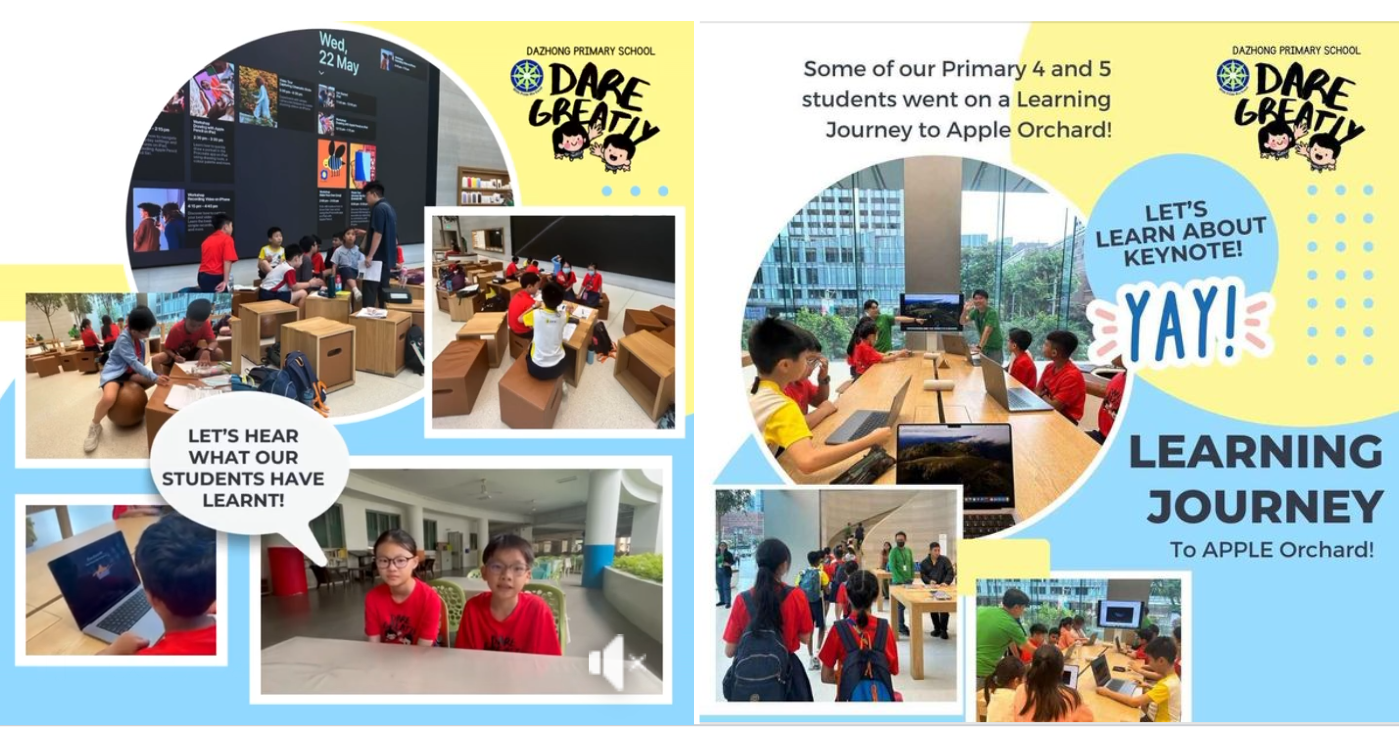Information & Communications Technology
Information & Communications Technology (ICT)
Aligned with the EdTech Masterplan 2030 and the 21st Century Competencies (21CC) framework, our school aims to nurture self-directed and collaborative learners by fostering active learning and interaction. Through purposeful integration of EdTech and appropriate e-Pedagogy, we develop students’ 21CC, including digital literacy and technological skills, while blending technology meaningfully across both physical and digital learning spaces.
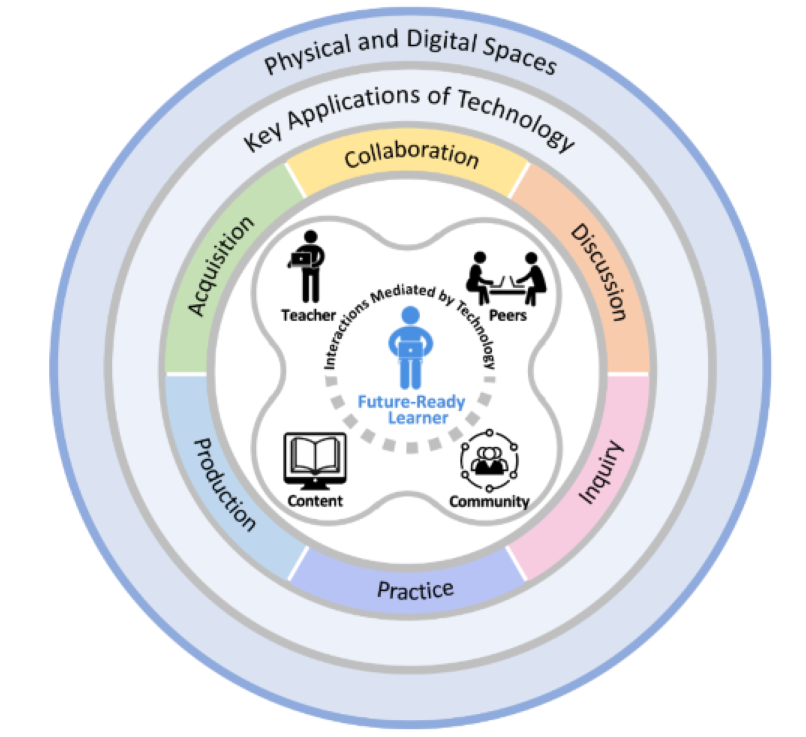
|
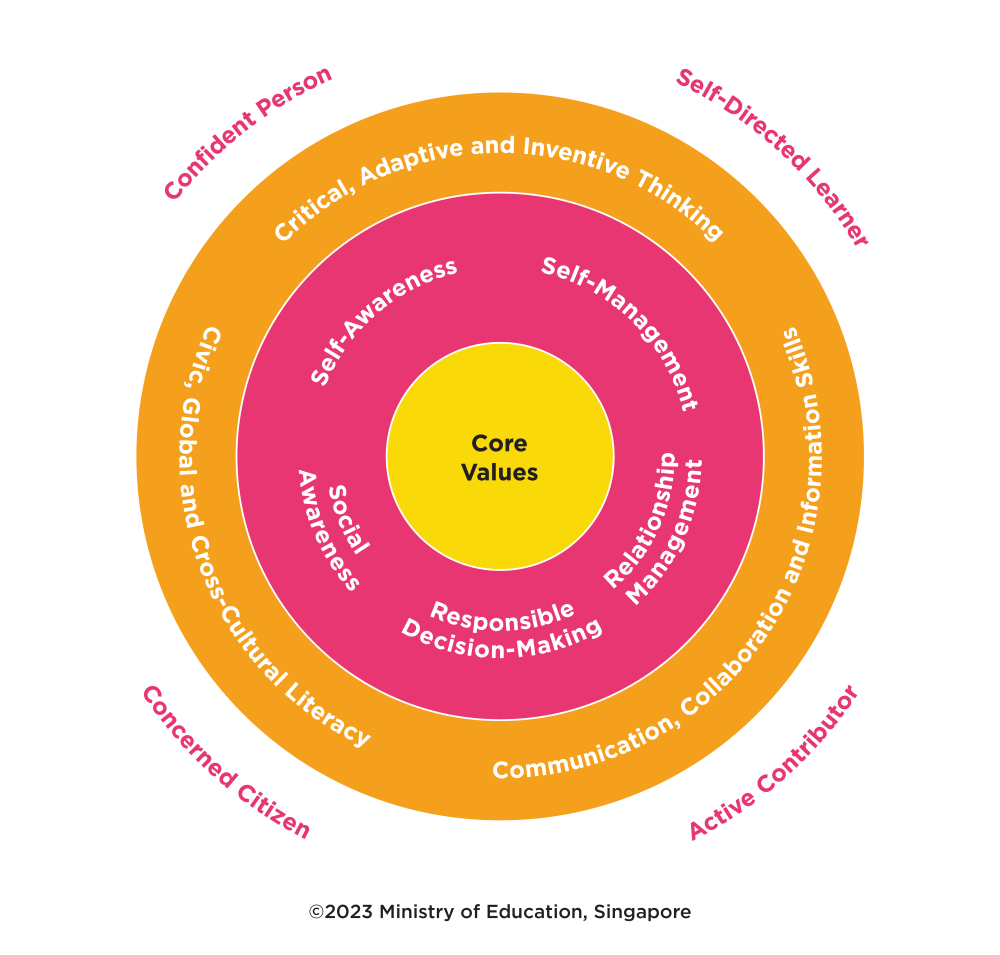
|
|---|
Central to this approach is the use of SLS as a one-stop hub, and the strategic development of student self-directedness and collaboration skills using EdTech from Primary 1 to Primary 6, in gradation to their cognitive growth.
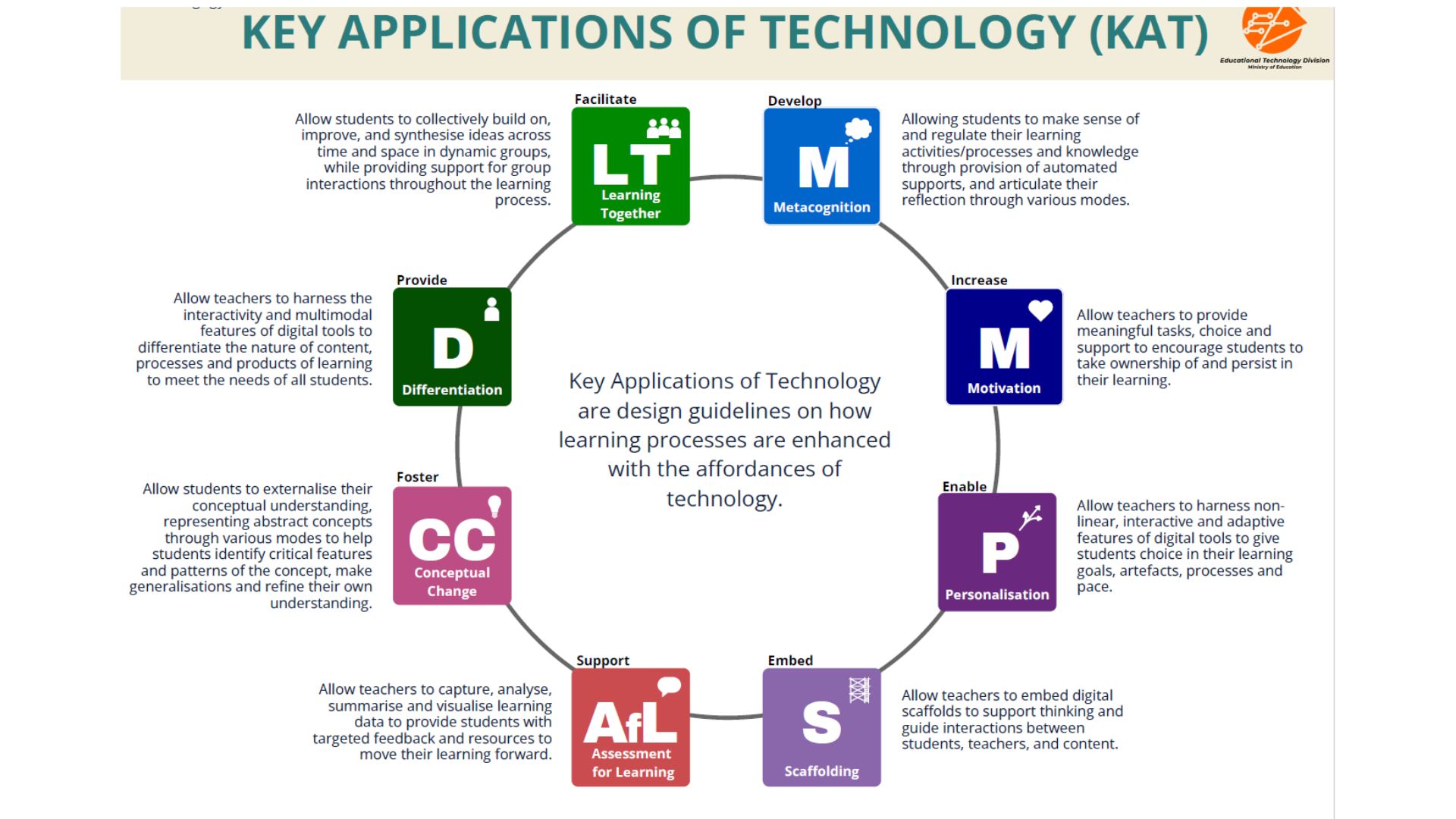
|
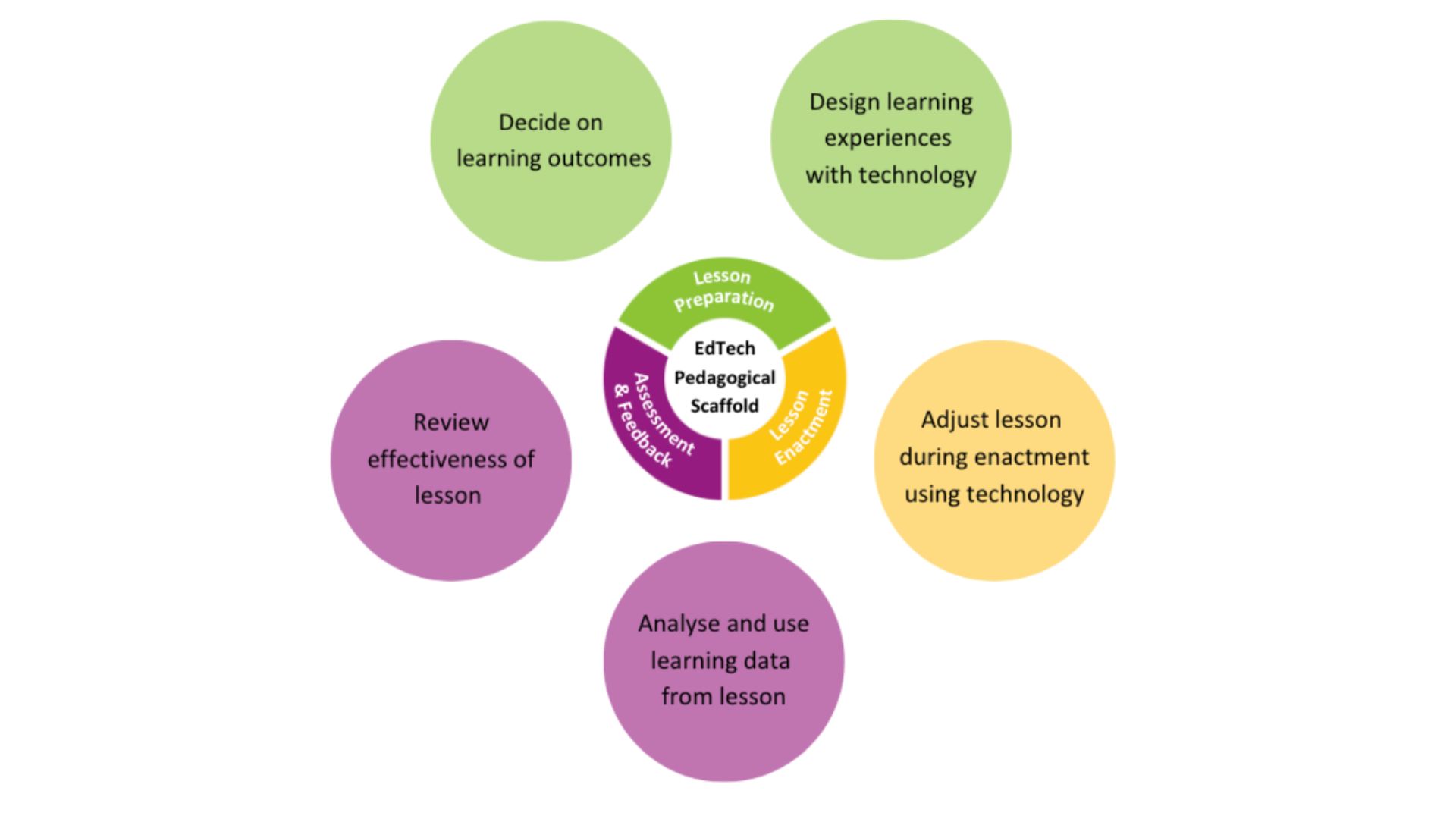
|
|---|
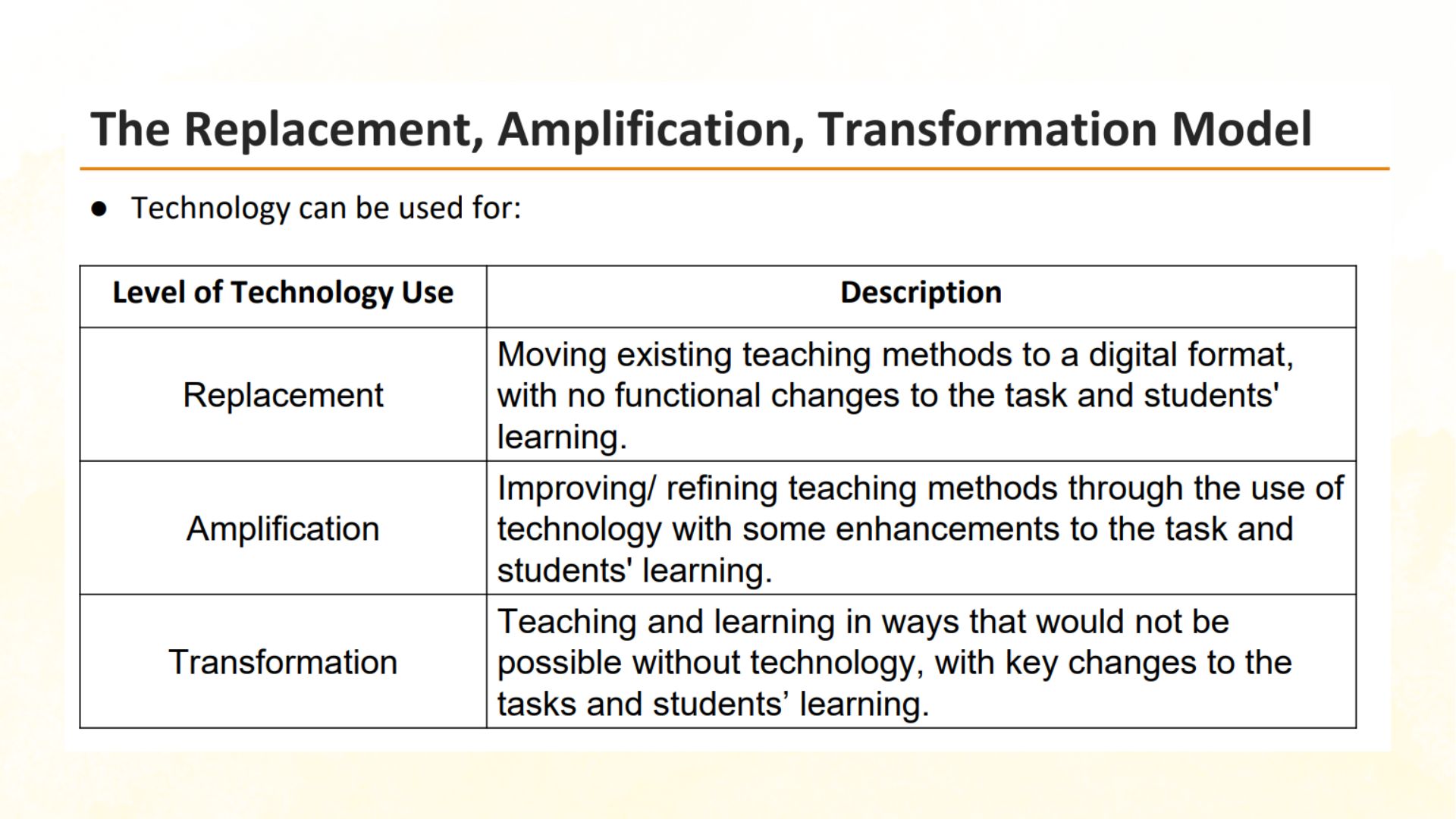
Our EdTech journey is guided by the RAT model, EdTech Pedagogical Scaffold, and Key Applications of Technology (KAT) to ensure meaningful tech integration. We also harness AI on platforms like SLS to provide personalised feedback, helping students become self-directed learners and promoting equity in success.
Digital Literacy and Technological Skills (DLTS)
In Dazhong, we ensure that students are well-equipped with the digital competencies to thrive in an increasingly technology-saturated future.
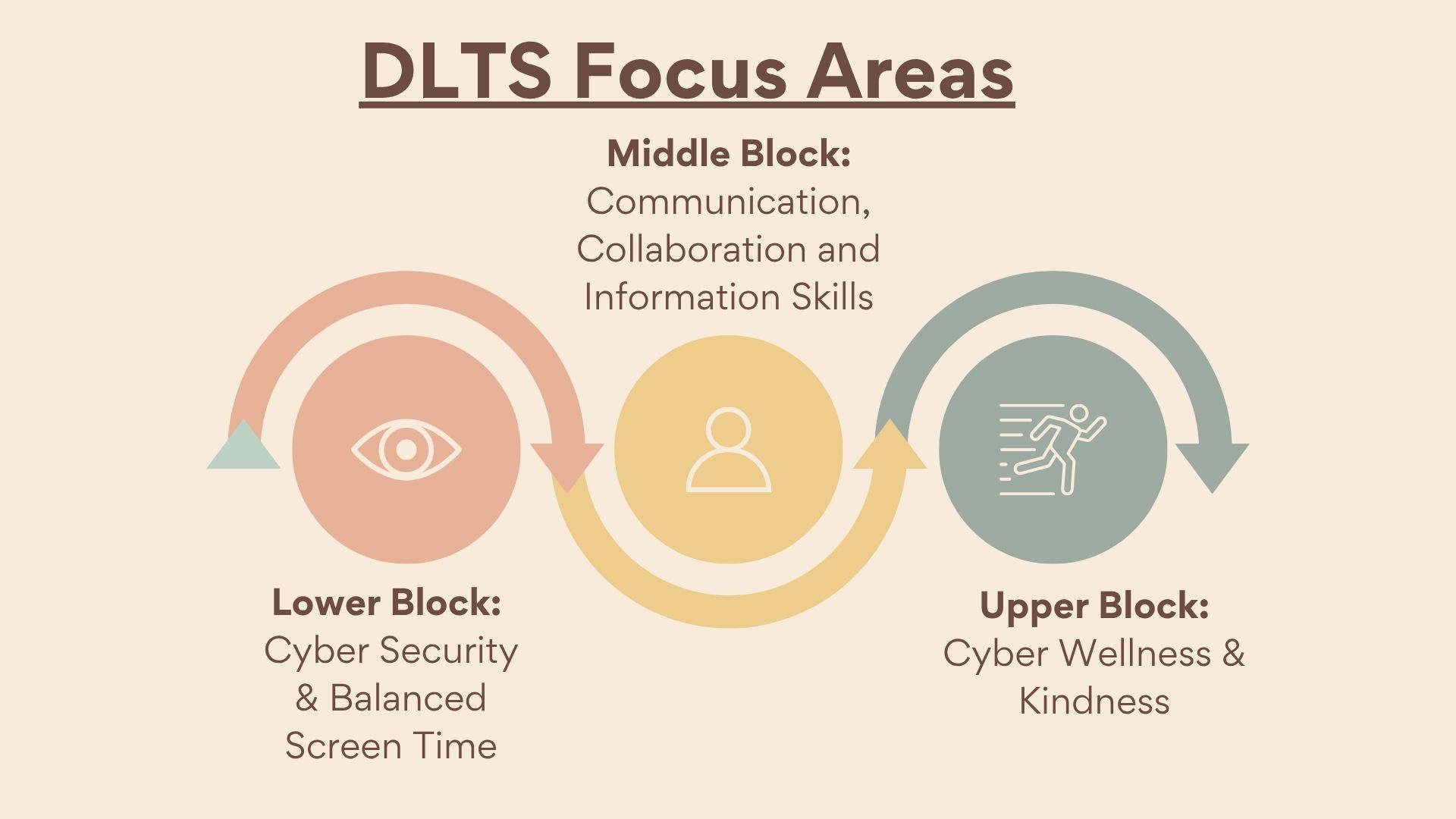
Lower Block DLTS (Primary 1 & 2)
The Lower Block DLTS focuses on Cyber Security and balanced screen time, guiding young learners in responsible device use, secure login skills including MIMS and Chromebook access, and digital citizenship fundamentals. Students also develop touch-typing proficiency to support their learning in a safe and balanced digital environment.
Middle Block DLTS (Primary 3 & 4)
The Middle Block DLTS emphasises Digital Communication, Collaboration, and Information Skills. Students engage in collaborative tasks using Google Suite tools, learning to co-create digital artefacts and communicate effectively in shared digital spaces. They also develop essential research skills, including responsible information search, data organisation, and basic data analysis. Alongside these, students explore digital responsibility by understanding internet etiquette, online identity, and respectful participation in online communities.
Upper Block DLTS (Primary 5 & 6)
The Upper Block DLTS focuses on Cyber Wellness and Kindness, guiding students to be responsible digital citizens. They learn to communicate ethically, respect copyright and intellectual property, and practise good social media etiquette. Through hands-on experiences with block coding, AI, and digital tools, students also develop skills in collaboration, content creation, and sustainable problem-solving using technology.
Stretch Programmes
Upper primary students who demonstrate a keen interest and ability in harnessing technology. These tech-adept students are provided with opportunities to attend competitions such as the National Thinking Challenge, organised in Singapore to foster critical thinking and problem-solving skills using technology. Additionally, our students participate in the Swift Explorers programme, headed by the School of Science and Technology (SST), which introduces young learners to the world of coding and app development using Swift, a powerful and intuitive programming language. As part of this programme, students engage in hands-on projects and challenges that enhance their coding skills and creativity. Furthermore, we organise visits to Apple, where students gain deeper insights into coding and innovative tech applications. Through these experiences, we aim to nurture their technological skills and inspire them to become future tech leaders.
Cyber Wellness
Good Digital Habits
In today's digital age, online content is ubiquitous, and there is an increased risk and exposure to harmful material. It is more important than ever that our students have a strong foundation in cyber wellness. At Dazhong, we work diligently within our school to encourage children to take good care of devices and use them responsibly. We also involve parents in the children's development of good digital habits through our Cyber Wellness newsletter, which contains valuable insights and tips for promoting a positive online experience for our children.
Safer Internet Day
In conjunction with Total Defence Week and emphasising Digital Defence, the school takes part in the annual global initiative aiming to promote safer and more responsible technology use among students. While we acknowledge the benefits of technology for learning and socialising, it's important for students to understand that excessive use can also harm their well-being. To foster balance, we recommended a 'Screen-free Weekend', encouraging students to use the time for family bonding. Visit https://www.digitalforlife.gov.sg/Learn/Resources for more tips on fostering healthy digital habits!


